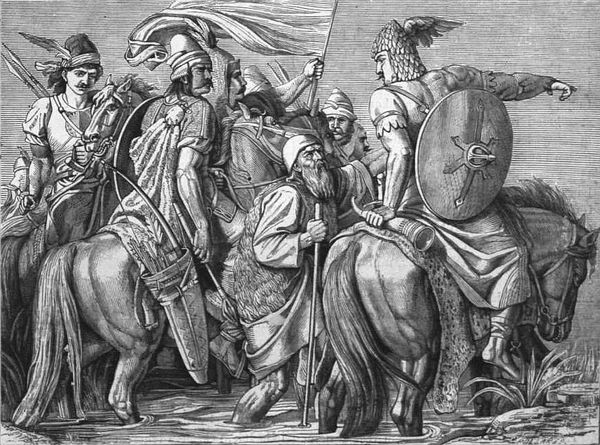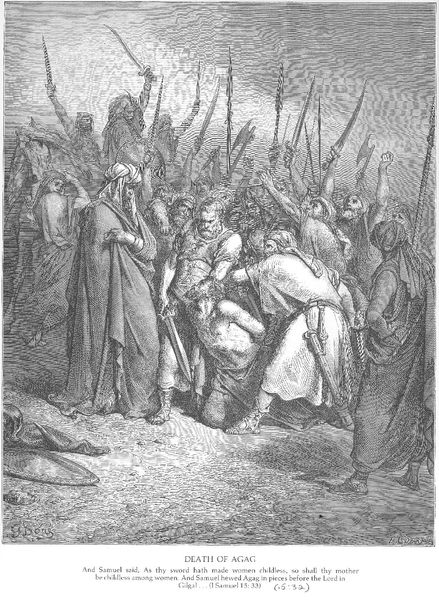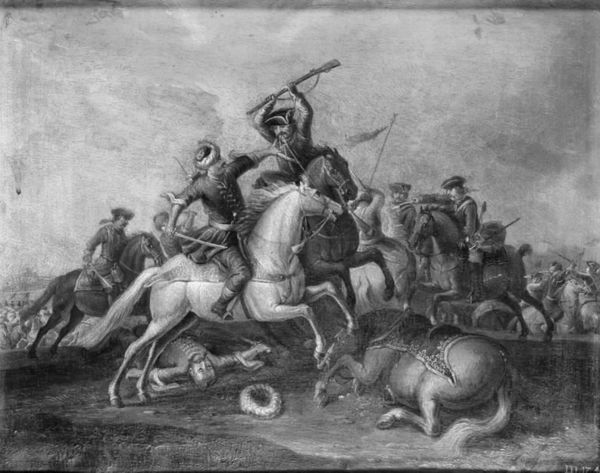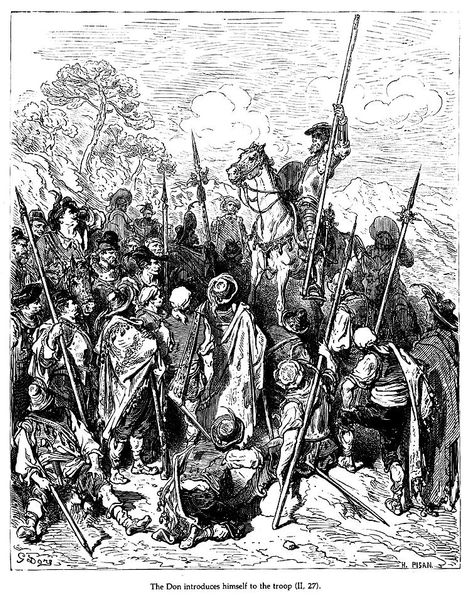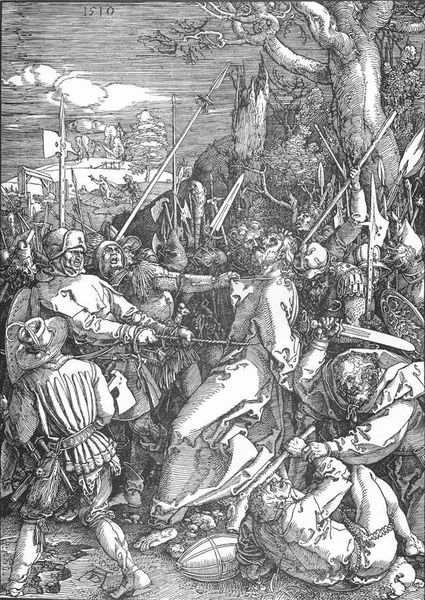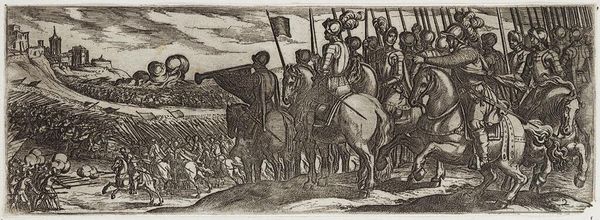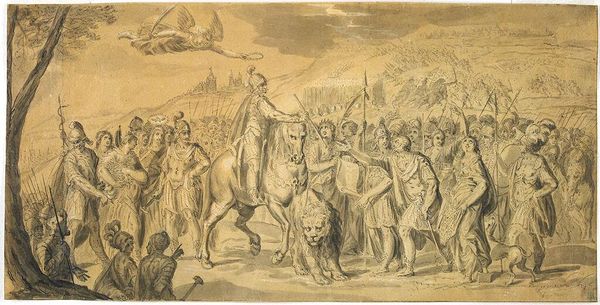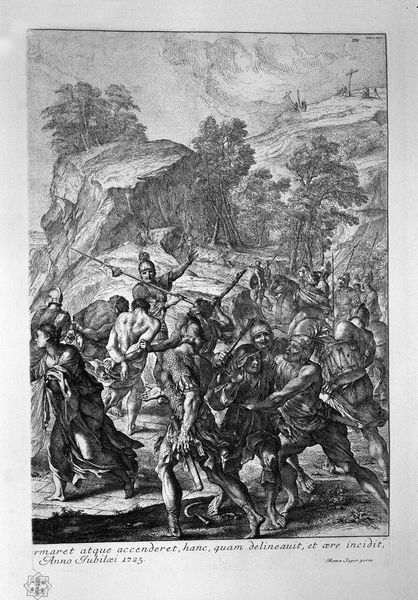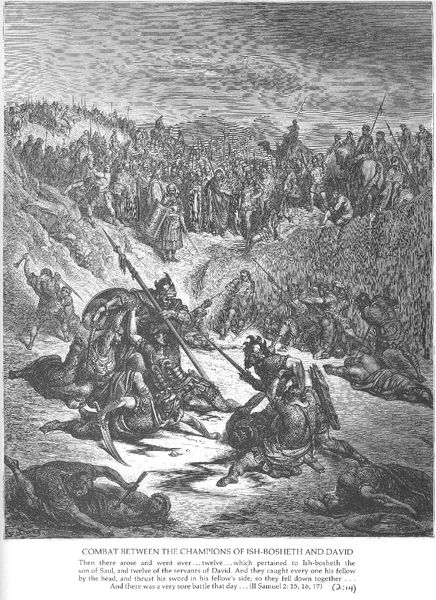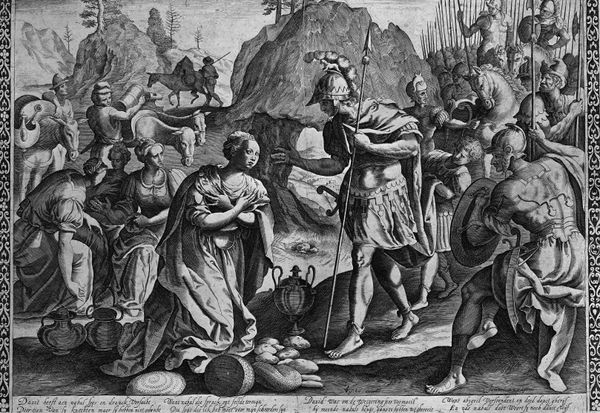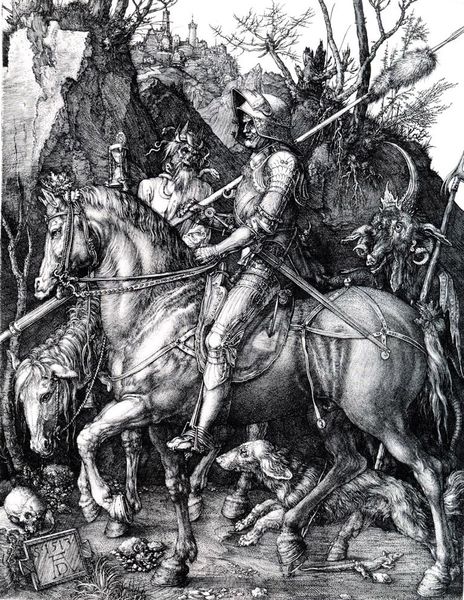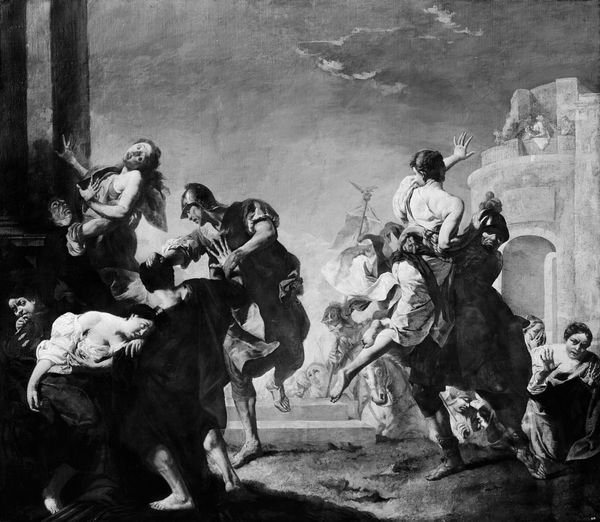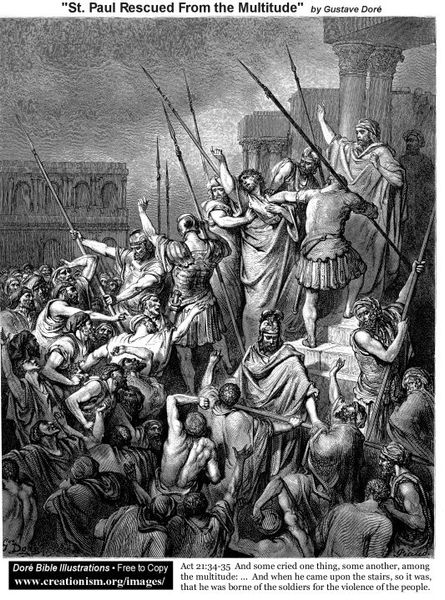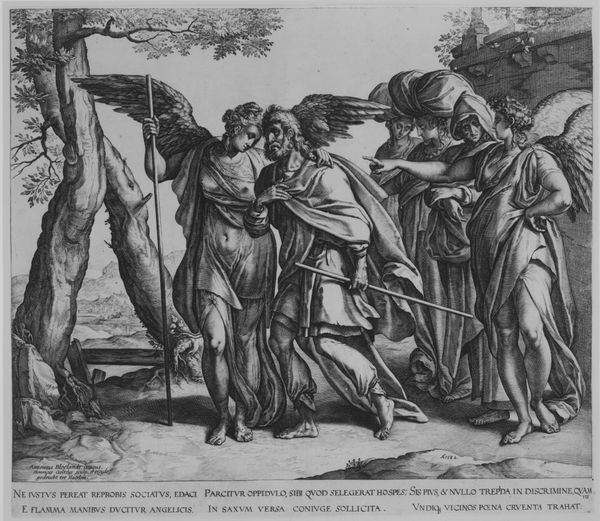
Hudibras' First Adventure, from 'Hudibras' by Samuel Butler
0:00
0:00
williamhogarth
Private Collection
drawing, print, engraving
#
drawing
#
narrative-art
#
baroque
# print
#
charcoal drawing
#
figuration
#
charcoal art
#
surrealism
#
line
#
portrait drawing
#
genre-painting
#
engraving
Copyright: Public domain
Curator: The sheer chaos leaps out! It's a fantastic free-for-all. Editor: That’s certainly one way to put it. We're looking at 'Hudibras' First Adventure', an engraving by William Hogarth, illustrating a scene from Samuel Butler’s satirical poem. The poem takes aim at the hypocrisy of the English Puritans. What is the story this tells, from an iconographic standpoint? Curator: Think of Don Quixote tilting at windmills, that kind of pompous delusion of grandeur. In Butler's poem, Hudibras fancies himself a valiant knight but really, he's ridiculous. This scene shows him, supposedly a champion of justice, embarking on some wild misadventure with all these bizarre figures in his wake. Notice the man riding the bear, a parody of heroism on every level. The bear itself, bound for some misguided entertainment, dragged by his captor in the same delusion of authority and importance. Hogarth captures it all with such deliciously acidic humor! The weapons, their outfits. And all their faces—gleefully idiotic. Hogarth skewers them. What a joy. Editor: The faces are interesting. Many carry a grotesque, exaggerated quality, but they seem to tap into enduring stereotypes, almost archetypes of misguided zeal. Consider their makeshift weaponry, the absurd garb, a deliberate corruption of recognized forms and symbols. These could easily represent the perennial conflict between tradition and rebellion and the resulting absurd theater that unfolds. And those musical instruments held by the throng in the middle... what are they about? Curator: Music gone wild! Like everything else in this scene, those instruments represent disruption and discord, both literally and figuratively. That's what makes this piece sing – Hogarth’s incredible ability to find humor in such potent satire. A perfect snapshot of human folly, as relevant today as it was then. It reminds me that questioning authority, including our own inflated sense of self, is the key. It's a timeless mirror, really, asking us how often we all fall prey to Hudibras-like delusions. Editor: It becomes quite thought-provoking as we look at how these symbols can shift over time. I now see the potential parallels to political theatre. The bear, used as a potent symbol across cultures, suddenly finds itself tethered to satire, not noble prowess. I find myself drawn to its implications and thinking of how the echoes of social critiques, rendered visible through symbolism, linger across centuries. Thanks for revealing those elements of Hodibras to me. Curator: Absolutely. It’s a bit like finding an unexpected message in a bottle. Always revealing, always insightful!
Comments
No comments
Be the first to comment and join the conversation on the ultimate creative platform.
